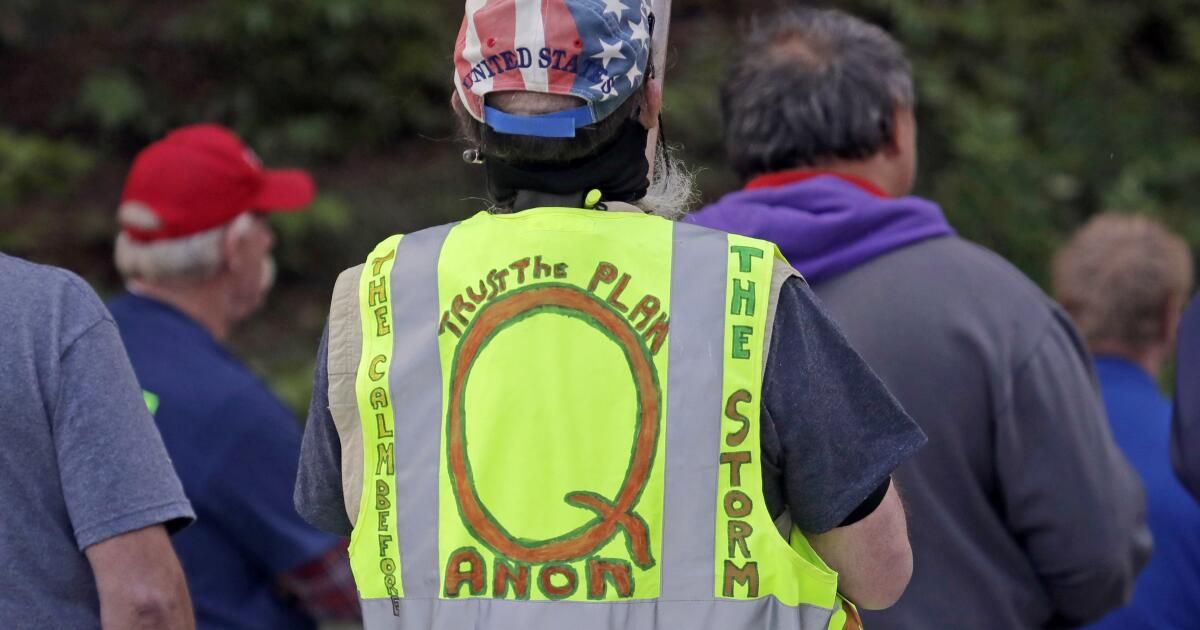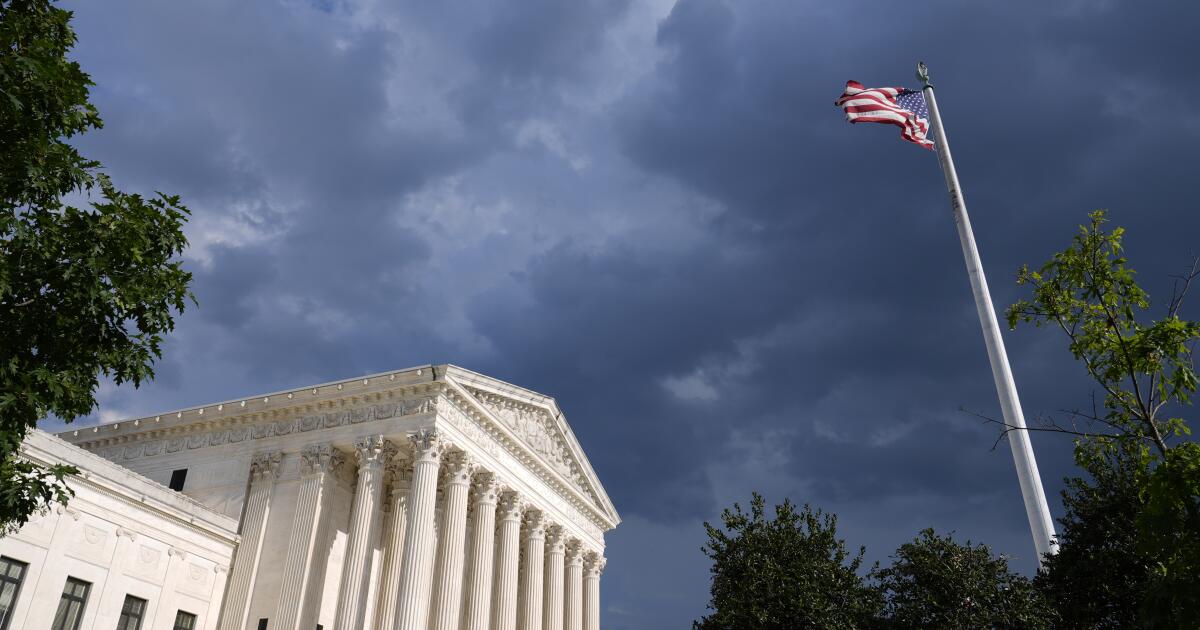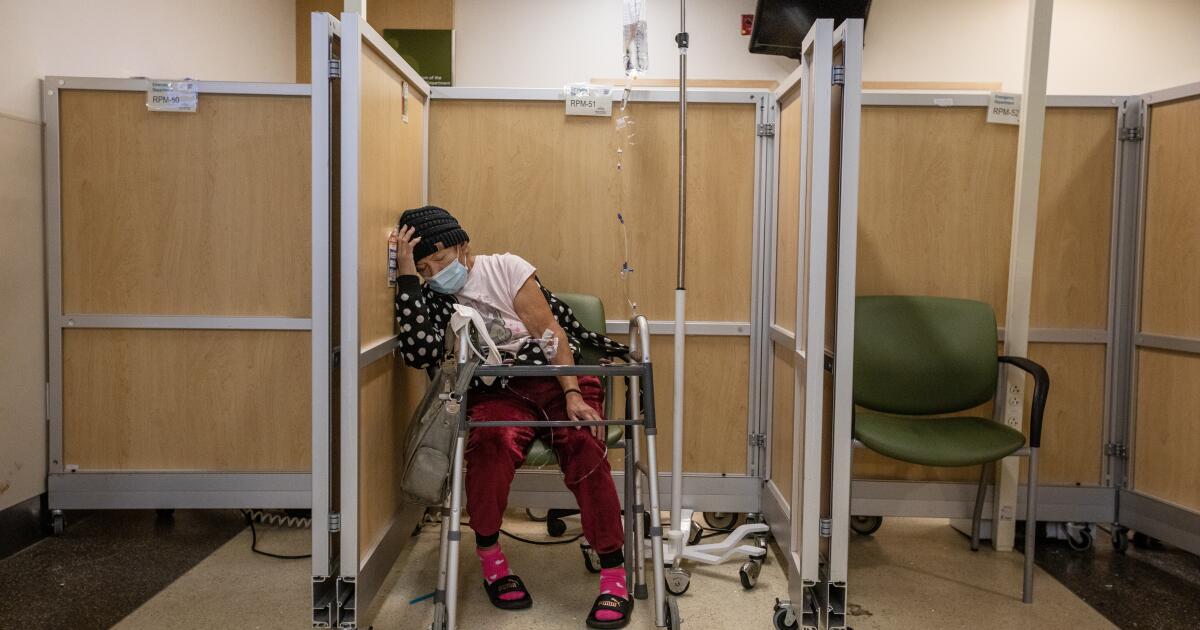Not long ago, a Midwestern father of two millennials I interviewed was convinced that many of our elected leaders like to feast on the flesh of children. He feared that the world was at the mercy of a depraved club of the richest and most powerful among us, armed with space lasers and clones.
The most shocking thing for those who knew him was not the conspiracy theories themselves. It was that he They had come to believe them. He was nearly 40, an honest man with a college education, friends, family and an established career. How, they wondered, had this perfectly sensible person gone mad?
It’s a question more and more Americans are asking about their loved ones. As misinformation permeates our culture, the path to QAnon territory grows shorter. Healthy skepticism easily gives way to undue suspicion. Dizzying public reaction The near-assassination of Donald Trump was a perfect illustration: Observers across the political spectrum rushed to fill the information vacuum with baseless claims that have gained momentum despite mounting evidence to the contrary, revealing a nation increasingly at odds with reality.
The statistics are as shocking as the falsehoods. Millions of people now believe that the government, the media and the financial world are “controlled by Satan-worshipping pedophiles,” according to recent surveyThese are not vague opinions. While writing for my book “The Quiet Damage,“I spoke to people across the country who had tried tirelessly to get the conspiracy theorists in their lives to accept the truth.
But the truth is almost irrelevant.
It seems perfectly sensible to combat fiction with facts. Yet, despite passionate loyalties professed to “the truth,” ardent proponents of conspiracy theories rarely have a desire to be accurately informed. Belief in the unbelievable, in many cases, arises from a desperation to fulfill fundamental human needs, such as feeling valued and having a purpose. Over the past three years, in interviewing hundreds of families torn apart by misinformation, it has become clear to me that facts alone cannot fix this. The solution begins with treating the obsession with conspiracy theories not as a disease, but as a symptom.
For this Midwestern father, the trouble began after an injury largely took away his mobility and, in turn, much of the meaning of his life. Once an active family man, he suddenly found himself stuck in a chair. His wife took up solitary hobbies and did housework alone; his children played with friends instead of their father. If he couldn’t fulfill his role as husband and father as he always had, who was he?
In the QAnon quagmire, which he eventually found his way into on the internet, he was a patriot who helped expose the corruption of the “deep state.” One of the good guys fighting for the good. Someone who mattered again. During his gradual journey from curiosity about QAnon to feverish acceptance of its wildest claims, his critical thinking skills didn't mysteriously disappear, they were overtaken.
Human needs are just that: needsOur innate need for things like meaning and belonging is only surpassed by what the body requires to subsist, and not by any thirst for accuracy or truth. When these needs are not met, we can become desperate to satisfy them by any means necessary. And the conditions that leave people deprived of what they need and susceptible to irrational conspiracy theories are common and often overlooked.
In movements like QAnon, the lonely find belonging, the aimless find direction, and the angry find validation. Think of baby boomers, who share An alarming amount of fake news onlineMany people believe that some mixture of Cognitive aging, poor digital literacy and too much Fox News But this overlooks a larger problem. Older adults fascinated by the conspiracy theory have described to me how, before they embraced a QAnon-like brand of what some called “activism,” they felt like they were no longer valued or needed by society. Facing what experts have identified as a “epidemic of loneliness”, they longed for purpose, community, and personal fulfillment.
By their nature, conspiracy theories offer all of the above. They offer their adherents an enemy to oppose and a cause to rally around. It’s not hard to see how posting Facebook messages (erroneously) warning about lethal COVID vaccines might have seemed like a self-imposed and rewarding job in retirement. Or how clinging to delusions that offer convenient answers and clear villains in times of debilitating uncertainty can restore feelings of autonomy and security.
There is no single mold of conspiracy theorists or set of circumstances that shape them. In my research, I have encountered people of all generations, classes, races, and political persuasions. They all had their own reasons for believing and their own needs to meet. A published political psychology study on the factors that predispose people to conspiracy theories shows that those least able to “bounce back” from hardship are more susceptiblewhich suggests that adopting these views can be a crutch. At the deepest level, then, believers don’t necessarily care whether Taylor Swift is really a psyop or whether chemtrails are poisoning the skies. What matters is how holding on to such convictions serves believers’ underlying needs.
In the end, it wasn't the truth that saved this Midwestern dad, though he's now seeing it clearly again. After severely damaging his life by going down the rabbit hole, he traveled a long, sometimes strange, and deeply difficult road toward regaining his sense of purpose as a father and partner. Only then did the ridiculous lies that had consumed him so much lose their power over him. He didn't need them anymore.
Success stories like this will remain rare if we don’t change how we approach this crisis. We live in a time when a number of critical stressors, including an unprecedented election season and a rise in artificial intelligence, are fueling a tsunami of misinformation and leaving many of us mentally and emotionally compromised. As more Americans turn to conspiracy theories to cope, we must remind ourselves that we can’t shut down delusions that serve people’s fundamental needs simply by debunking them. We need to focus on the cause, not the symptom, look beyond the madness, and plumb the roots of our collective vulnerability—because none of us are as immune as we’d like to think.
Jesselyn Cook is a reporter and journalism professor. Her new book is “The Silent Damage: QAnon and the Destruction of the American Family“












